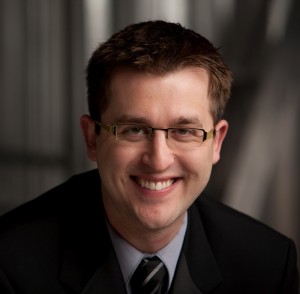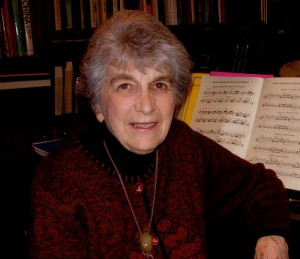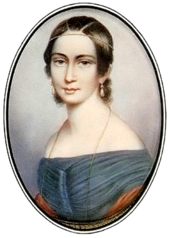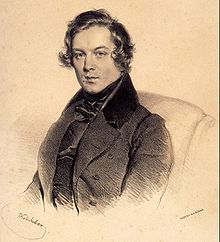Music Lovers Seminars this Monday and Tuesday from 10 a.m. to noon at St. Francis Church; talks given by Laila Storch
The “Clara and Robert” concerts featured this Tuesday and Wednesday at the Orcas Island Chamber Music Festival, embrace the romantic movement of the 19th century as it features the compositions of Clara and Robert Schumann.
What do the Schumanns and the Romantic movement have to say to us today?
In his history of western cultural life, From Dawn to Decadence, Jacques Barzun describes romanticism as “An outburst against abstract reason and a search for order,” and “a state of consciousness” rather than an ideology. Romanticism arose in the early 1800s as dissatisfaction with the neo-classicism of the previous century and an enthusiasm for new forms arose. While romantic expression “validated passion and risk while not excluding reasoning and reality,” it does not of itself mean foolish, unreal, or sentimental to the point of stupidity.
The stories of Clara and Robert Schumann’s lives of love, loss and gifts personify the highest ideals of the Romantic movement.
This year marks the bicentennial of the birth of pianist and composer Robert Schumann. He was born the youngest child of a bookseller and editor, and was steeped in literary influences from his earliest years. As a university student at Leipzig and Heidelberg, Schumann “dreamed a good deal at the piano and over the favorite fantastic authors of the romantic style,” according to Daniel Gregory Mason in International Cyclopedia of Music and Musicians.
He also studied law to please his mother but after hearing Clara Wieck, a nine-year-old child prodigy who had been brought up by her divorced father, Friedrich Wieck, perform in concert, Schumann threw himself into piano performance. He began studying under Wieck, but his passionate nature showed its manic characteristic in his studies, as he invented a device to strengthen his fourth finger in piano playing. This may have caused permanent injury to his hand and he devoted himself to composition rather than to performance.
In 1834, Schumann began a music newsletter (compiled in the volume, Music and Musicians) which he wrote and edited for 10 years. In its first issue he wrote” Let us lend our aid to progress, let us bring again the poetry of art to honor among men.”
Schumann’s “cordiality of nature” (Mason) through the years extended to his musical forebears (“With Bach, everything is written as if for eternity”) to his teachers (“[Heinrich Dorn] drew me aloft so that I should see… more of the pure air of art”) and his fellow musicians (“Hats off, gentlemen, — a genius” in a salute to Chopin; he wrote of Brahms, “The young eagle; I should dearly like to be at his side on his flight over the world.”
Schumann’s own first compositions were solely for piano, including the Kinderscenen, creating in music the scenes reminiscent of Robert Louis Stevenson’s Child’s Garden of Poetry.”
Davidsbündlertänze, literally ‘Dances of the League of David’ embodies the struggle between enlightened Romanticism and “musical philistinism,” with the two sides of Schumann’s character actually credited with the composition of the work (the more passionate numbers are signed F.(Florestan) and the more dreamy signed E.(Eusebius).
Despite the opposition of Clara’s father, she and Robert continued to meet secretly. In 1837 he asked her father’s consent to their marriage, but was refused, with Wieck ridiculing his daughter’s wish to “throw herself away on a penniless composer.”
Eventually the young couple successfully filed legal suit to be married without Wieck’s consent. His objections were overturned and he was sentenced to jail for 18 days for unruly courtroom behavior, after accusing Schumann of habitual drunkenness and the inability to support a wife.
In the years before his marriage, Schumann had written almost exclusively for the piano, but in 1840 alone he wrote 168 songs, or lieder, works for piano and voice.
For her part, Clara was a brilliant composer and pianist and had a performing career from a very early age. Beginning in early childhood, Clara’s father gave her daily lessons in piano, violin, singing, theory, harmony, composition, and counterpoint. At age 18, Clara received Austria’s highest musical honor, name “Royal and Imperial Chamber Virtuoso.”
In the various tours on which she accompanied her husband, she extended her own reputation beyond Germany, and her efforts to promote his works gradually made his work accepted throughout Europe.
The year following his marriage to Clara, Robert Schumann wrote two of his four symphonies. He devoted 1842 to composing chamber music, (including the Piano Quintet in E Flat, Op. 44, one of his most admired works which will conclude the Chamber Music Festival’s final concerts on Aug. 27 and 28.)
Robert and Clara had eight children. She continued to perform and compose after the marriage even as she raised seven children, and wrote in the diary she kept with her husband, “Composing gives me great pleasure…there is nothing that surpasses the joy of creation, if only because through it one wins hours of self-forgetfulness, when one lives in a world of sound.”
But, “She was also a mom,” says Aloysia Friedmann, “and I think she realized at a certain point, a woman composer wouldn’t be accepted.”
For his part, Robert Schumann wrote in the joint diary, “”Clara has composed a series of small pieces, which show a musical and tender ingenuity such as she has never attained before. But to have children, and a husband who is always living in the realm of imagination, does not go together with composing. She cannot work at it regularly, and I am often disturbed to think how many profound ideas are lost because she cannot work them out.”
She often took charge of the finances and general household affairs due to Robert’s mental instability. Part of her responsibility included making money, which she did by giving concerts, although she continued to play throughout her life not only for the income, but because she was a concert artist by training and by nature. Robert, while admiring her talent, wanted a traditional wife to bear children and make a happy home, which in his eyes and the eyes of society were in direct conflict with the life of a performer. Furthermore, while she loved touring, Robert hated it. Despite his achievements, Schumann received few tokens of honor. (Wikipedia) On one occasion, accompanying his wife on a concert tour, Schumann was asked whether “he too was a musician.”
Clara Wieck-Schumann composed nothing after the age of thirty-six, following Robert Schumann’s death.
Robert Schumann’s last 10 years saw his mental and emotional health decline. He suffered from fits of shivering and an apprehension of death and experienced an abhorrence for high places, for all metal instruments (even keys), and for drugs. He was often anxious, obsessed, depressed and exhausted. Given his reported symptoms, it’s been suggested that Schumann suffered from syphilis, mercury poisoning or bipolar disorder. An appointment as musical director at Düsseldorf in 1850 was not successful; it was said he was a poor conductor and quickly aroused the opposition of the musicians.
He traveled to Prague, Vienna and Berlin where he was heartened by an enthusiastic reception. Still he completed two more symphonies, and the Piano Concerto in A Minor (op.54) described by Hutcheson as “a masterly … the finest piano concerto since Mozart and Beethoven.”
After his travels, Schumann returned to Düsseldorf to edit his complete works and make an anthology on the subject of music, but his mental symptoms returned, along with constantly hearing a musical note (possibly evidence of tinnitus) and also hearing voices.
He warned his wife that he feared he might hurt her, and in 1854, he attempted suicide by throwing himself from a bridge into the Rhine. Rescued by boatmen and taken home, he asked to be taken to an asylum for the insane, where he remained there until his death two years later.
It was in Robert Schumann’s later years, in 1853, that he and Clara met Johannes Brahms, aged twenty. They were both immediately impressed with Brahms’ talent. Brahms became a lifelong friend to Clara, sustaining her through the illness of Robert, asking for her advice about new compositions, even caring for her young children while she went on tour. They remained good friends up until Clara’s death, however there is no historic evidence that their relationship was ever more than just friendship.
Clara Schumann’s family life was punctuated by tragedy. Her first son Emil died in 1847, aged only one. In 1872 her daughter Julie died, leaving two small children. In 1879, her son Felix, aged 25, died. Her son Ludwig suffered from mental illness, like his father, and, in her words, had to be “buried alive” in an institution. Her son Ferdinand died at the age of 43 and she raisde his children. (Wikipedia)
“The Schumanns’ and Brahms’ personal lives are very worthy of soap-opera dramas,” “They were very involved in passion, love and work struggles that we in the 21st century can relate to,” says OICMF Founder and Artistic Director Aloysia Friedmann.
She describes Schumann’s last years as “tragic: he was institutionalized and cut off from seeing his family. Yet he still continued composing symphonies and chamber music in the face of severe mental illness.”
Märchenbilder(Fairy Tale Pictures) for Viola and Piano
The “Fairy Tale Pictures” demonstrate Schumann’s melodic gifts, displaying moods from tender to marital, tempestuous and melancholy, according to OICMF Program Annotater Jeff O’Kelly. The four short pieces will be performed by James Dunham on viola, and Andrew Staupe on piano.

Andrew Staupe, doctoral student with Jon Kimura Parker, will make his first appearance at the Orcas Island Chamber Music Festival this season.
Staupe is a doctoral student of Jon Kimura Parker’s at Rice University in Houston. Friedmann says, “It will be wonderful to be able to introduce him to our audiences; he is very personable and a good speaker also.”
Staupe is a concerto soloist and recently completed a solo concert tour in Holland and Bulgaria. Next year he will appear in both Moscow and St. Petersburg, on a Russian tour. He has performed concerti by Mendelssohn, Lizst, Saint-Saëns and Rachmaninoff with the Minnesota Orchestra and other Midwestern orchestras.
He is a founding member of the Coolidge Trio with violinist Sonja Harasim and cellist Lachezar Kostov. Staupe completed his B.M. and M.M. in Piano Performance at the University of Minnesota, studying with pianist and Distinguished McKnight Professor Lydia Artymiw.
As a result of winning the Shepherd School of Music Concerto Competition in March 2010, Staupe will perform Rachmaninoff’s Piano Concerto No. 3 with the Shepherd School Symphony next year.
Staupe has a keen interest in performing new music and has premiered a number of works for solo piano and chamber ensemble. During his April 2010 European tour Andrew performed two works dedicated to him by composers Christopher Walczak and Christopher Goddard.
Sonata for violin and piano in D minor
Despite the mental breakdown that Schumann experienced in the last years of his life, this sonata shows the “passionate character and beautiful melodies” of Schumann’s best work. In it, Schumann shows his preference for piano composition, for the violin duplicates the “voice” of the piano. Yet, with “stormy and passionate “ outer movements, add to the “emotional intensity, beautiful melodies and experiments in form” that make this piece a favorite of many violinsts. (O’Kelly)
The Sonata in four movements will be performed by Aloysia Friedmann on violin and Jon Kimura Parker at the piano. This is the OICMF’s first big violin sonata for Aloysia, and presents a challenge her: in past years she has concentrated on viola performances.
Clara Schumann Three Romances for violin and piano
Martin Chalifour, accompanied by Andrew Staupe on piano, will play what Aloysia describes as “three beautiful gems of music.”
These Romances are more traditional compositions than those of her husband’s work, says Aloysia. “The first is dreamy, the second a little perkier… and the third more passionate with a flowing melody for the violin over an agitated piano accompaniment.” (O’Kelly).
Quartet for Piano, Violin, Viola and Cello in E-flat Major
This piece was written in 1841, the year after the Schumann’s marriage, when he devoted himself to composing chamber music: along with tonight’s Piano Quartet; three string quartets; and the celebrated Piano Quintet.
According to O’Kelley, the Quartet hearkens back to the neo-classicism that prevailed before the romantic movement. He describes the moods of the piece as “thrilling, mysterious, yearning and lyrical” with a s “nearly ideal sense of balance.”
The Quartet will be performed by Jon Kimura Parker on piano, Martin Chalifour on violin, James Dunham on viola, and Anne Martindale Williams on cello.
A frequent guest at the Orcas Island Chamber Music Festivals, Anne Martindale Williams has performed as principal cellist of the Pittsburgh Symphony Orchestra for more than 20 years, often featured as soloist both in Pittsburgh and on tour in New York at Carnegie Hall and Avery Fisher Hall. She graduated from The Curtis Institute of Music and performs on aTecchler cello made in Rome in 1701.
She has also collaborated with guest artists in numerous chamber music performances. She divides her time between the orchestra, teaching at Carnegie Mellon University and Duquesne University, and solo and chamber music performances.
She is also a member of the Carnegie Mellon Trio and has performed at many summer music festivals, including the Bay Chamber Concerts, as well as the Aspen, Caramoor, Skaneateles, Maui, Rockport, Grand Teton and Strings in the Mountains music festivals. She has appeared in several nationally televised productions including Concertos produced by the BBC.

Laila Storch, oboist, professor and author, will speak at the Music Lovers Seminars and the "Clara and Robert" concert talks
Laila Storch, who is Aloysia Friedmann’s mother, will give the pre- and post-concert talks for this series, as well as giving the Music Lovers Seminars on August 16 and 17. Aloysia says, “She has a wealth of knowledge about Schumann, and it is fascinating to hear my mom speak: she truly speaks well to enlighten the audience and to put things in context.”
Laila Storch was principal oboist of the Houston Symphony Orchestra from 1948– 55 playing under conductors Efrem Kurtz, Bruno Walter, Eugene Ormandy, Dmitri Mitropolous, Ferenc Fricsay, Leopold Stokowski, and Sir Thomas Beecham. She has traveled to and performed in Austria and Puerto Rico. She also played in the U.S. and Spain. In 1962 she toured the Soviet Union as oboe d’amore soloist with the Robert Shaw.
During twenty-six years with the Soni Ventorum Wind Quintet at the University of Washington, she toured extensively in the United States, South America and Europe as well as recording twenty albums of the quintet repertoire.
Since becoming Professor Emeritus at the School of Music, University of Washington, Laila Storch has been a visiting professor nationally and internationally. She has written numerous articles on oboe history and in 1995 was cited by The New York Times as “a revered chronicler of oboe lore.”
She is an honorary member of the International Double Reed Society and in 1994 was also elected to the Comité d’Honneur of the Association française du Hautbois.In 2009 Laila Storch was given the Alumni award of the year by The Curtis Institute of Music in Philadelphia.
Laila came to Orcas Island for the first time in 1969 with her husband Martin Friedmann and daughter Aloysia. Her recent book, Marcel Tabuteau—How Do You Expect to Play the Oboe If You Can’t Peel a Mushroom? was the subject of a book signing and reading hosted by Darvill’s Bookstore during the 2008 Orcas Island Chamber Music Festival.
“Clara and Robert” will be performed Tuesday, August 17 at 7:30 p.m. Ann Graves is sponsor of the first night’s concert; Trisha and Jonathan Loop have provided for the reception, and Keiko Parker sponsors the pre-concert event.
Valerie and William Anders with Nani Warren sponsor the Wednesday evening concert. The reception is provided by Andrea Hendrick honoring Hugh Hendrick, and the post-concert event is sponsored by Heidi and Larry Lindberg.
Tickets may be purchased at www.oicmf.org or by calling 360-376-6636 or toll-free at 866-492-0003.
Waiting List policy
OICMF Executive Director Victoria Parker says, “A very productive waiting list is offered for each concert (with the exception of the Children’s Concert). When tickets become available through returns or traded nights, staff will call those on the Waiting List in the order of their inclusion. Every reasonable effort will be made to contact those on the list. Approximately 30 minutes before a concert begins, the waiting list will be abandoned and hopeful patrons waiting in the lobby will be offered any tickets that are still available. Seats that are not occupied by Intermission will be resold at a reduced price.”
**If you are reading theOrcasonian for free, thank your fellow islanders. If you would like to support theOrcasonian CLICK HERE to set your modestly-priced, voluntary subscription. Otherwise, no worries; we’re happy to share with you.**









